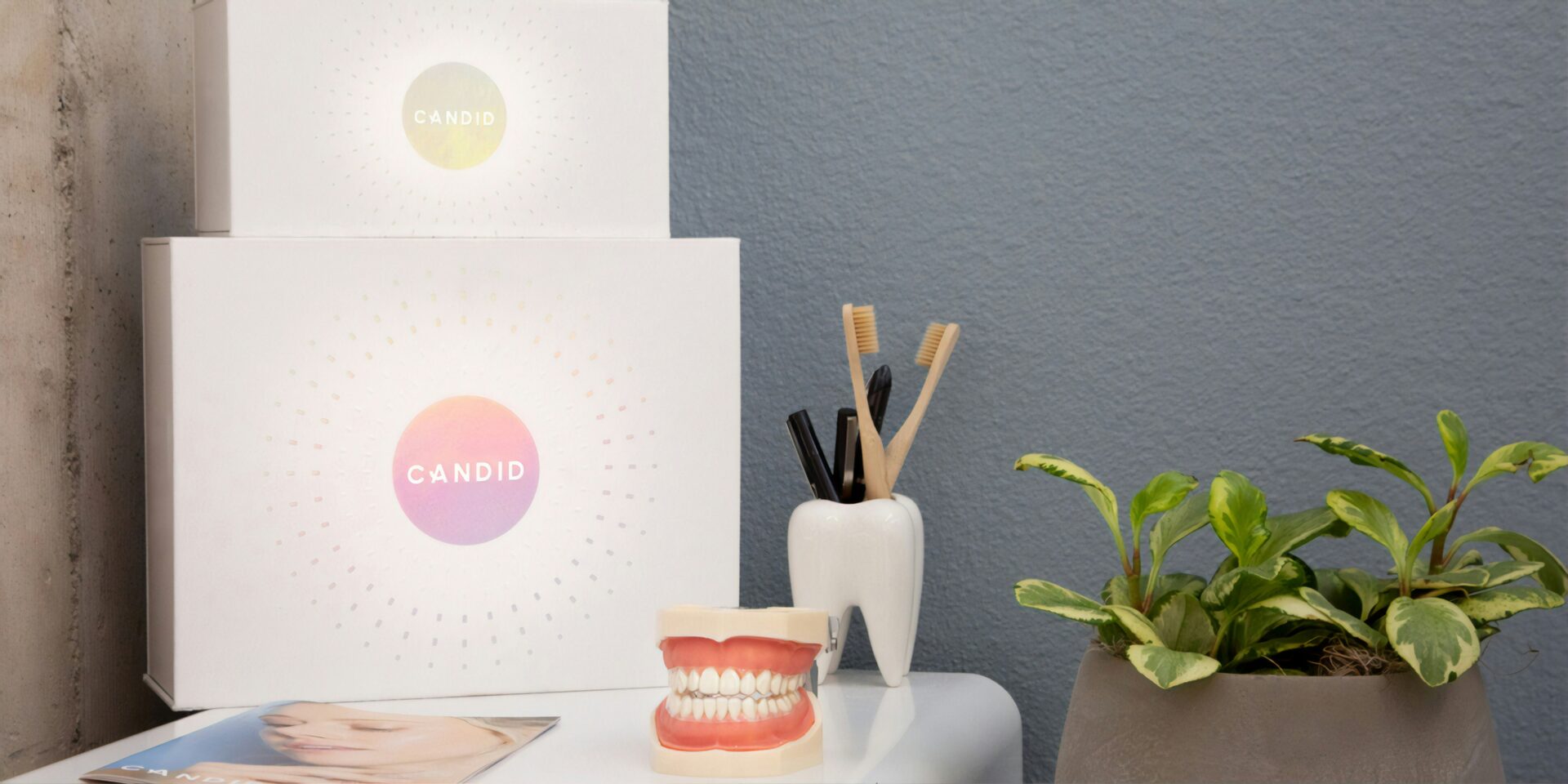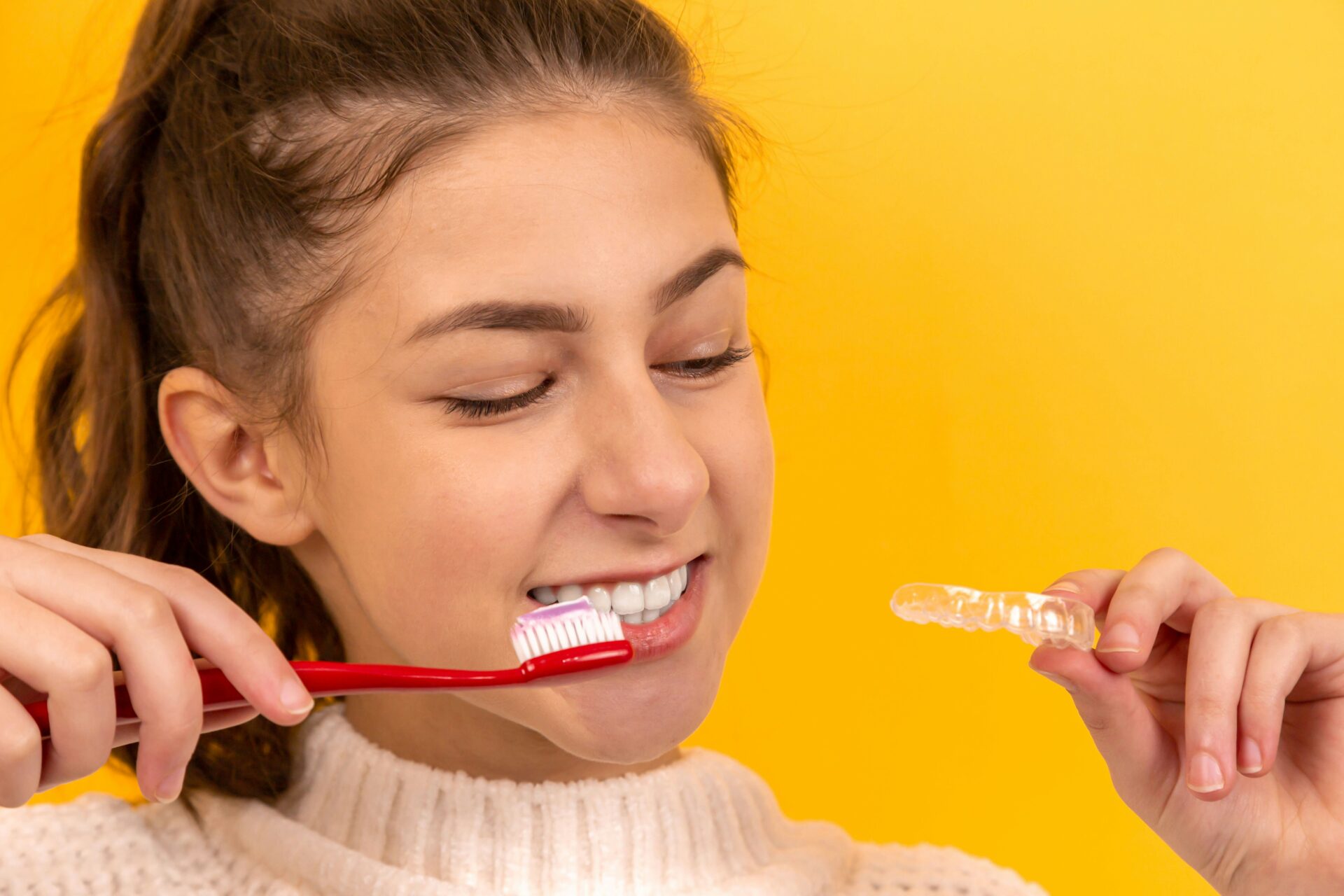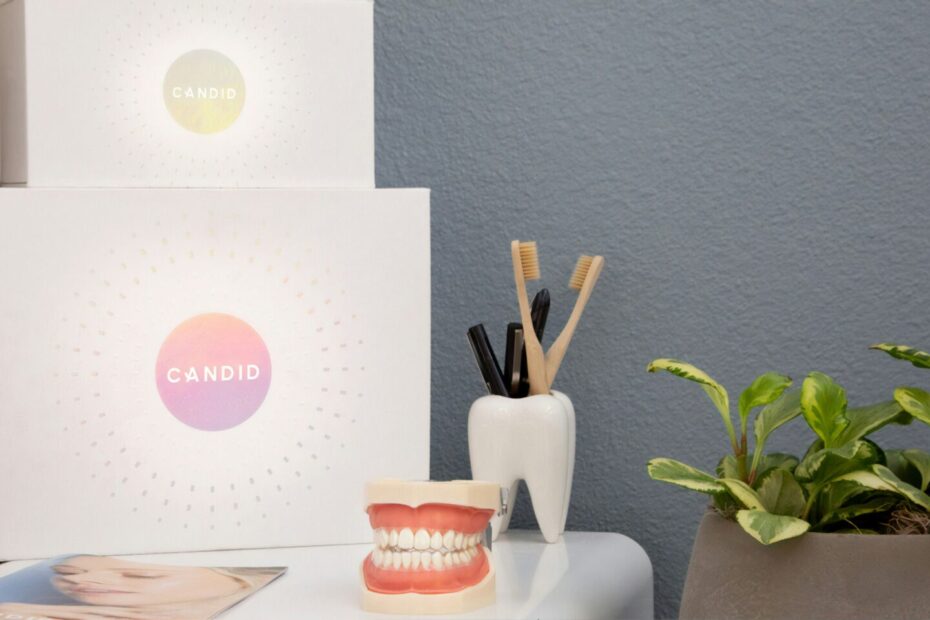Maintaining a dazzling smile doesn’t have to be a daunting task! In this article, we will explore some effortless habits that can help you prevent tooth decay and keep your pearly whites looking pristine. From brushing techniques to dietary choices, we’ll provide you with simple yet effective strategies to preserve the health and beauty of your smile. So, grab your toothbrush and let’s dive right in!
Brushing and Flossing
Brushing twice a day
Brushing your teeth twice a day is essential for maintaining good oral hygiene. It helps to remove food particles and plaque that can lead to tooth decay and gum disease. Make sure to use a soft-bristled toothbrush and fluoride toothpaste. Brush all surfaces of your teeth, including the outer, inner, and chewing surfaces. Take your time and brush gently in circular motions for at least two minutes.
Using the right technique
Brushing your teeth is not just about the frequency, but also about using the correct technique. Hold your toothbrush at a 45-degree angle against the gumline and make small circular motions. Brush each tooth individually, paying attention to the gumline and back molars. Don’t forget to brush your tongue to remove bacteria and freshen your breath.
Flossing daily
Brushing alone cannot reach all the tight spaces between your teeth, which is why flossing is crucial. Flossing once a day helps remove plaque and food particles that your toothbrush can’t reach. Take about 18 inches of dental floss and wrap it around your fingers, leaving a small section to work with. Gently slide the floss in between your teeth, following the natural curve of each tooth. Be careful not to snap the floss against your gums, as this can cause bleeding or injury.
Using mouthwash
Using mouthwash is an excellent addition to your oral hygiene routine. It helps freshen your breath and can kill bacteria that cause bad breath, plaque, and gum disease. Choose a mouthwash that contains fluoride to further protect your teeth against decay. Rinse your mouth with mouthwash for about 30 to 60 seconds after brushing and flossing. It’s best to use mouthwash at a different time from brushing so that the fluoride in the toothpaste stays on your teeth longer.
Eating and Drinking Habits
Limiting sugary foods and drinks
Reducing your consumption of sugary foods and drinks is a significant step in preventing tooth decay. Sugars provide food for the bacteria in your mouth, which produce acid that erodes tooth enamel. Limit your intake of candies, sodas, fruit juices, and other sugary treats. If you do indulge in sweets, try to brush your teeth soon afterward to minimize the exposure to sugar.
Avoiding sticky and hard foods
Sticky and hard foods can wreak havoc on your teeth. Sticky foods, like caramel or toffee, can cling to the surface of your teeth and can be challenging to remove. Hard foods, such as ice cubes or popcorn kernels, can cause dental fractures or chip your teeth. Be mindful of what you eat and opt for softer alternatives or cut foods into smaller, more manageable pieces.
Drinking plenty of water
Drinking water throughout the day is not only good for your overall health but also for your oral health. Water helps wash away food particles and dilutes the acids produced by bacteria in your mouth. It also helps keep your mouth hydrated and encourages saliva production, which helps neutralize acids and remineralize your teeth. Make it a habit to drink water after meals or snacks, especially if you can’t brush your teeth right away.
Choosing tooth-friendly snacks
When reaching for a snack, consider options that are beneficial for your teeth. Fresh fruits and vegetables, such as apples and carrots, help stimulate saliva production and naturally clean your teeth. Cheese is another tooth-friendly snack that can help neutralize acids and strengthen tooth enamel. Incorporate these snacks into your diet to promote better oral health.

This image is property of images.unsplash.com.
Regular Dental Check-ups
Visiting the dentist every six months
Regular dental check-ups are essential for maintaining optimal oral health. It is recommended to visit your dentist at least every six months, even if you don’t have any apparent dental issues. Regular check-ups allow your dentist to detect early signs of decay, gum disease, or other dental problems. Your dentist will also perform professional cleanings to remove plaque and tartar buildup that cannot be removed with regular brushing and flossing.
Getting professional cleanings
A professional cleaning performed by your dental hygienist is an vital part of your dental check-up. This process involves removing plaque and tartar from your teeth and along the gumline using specialized tools. Professional cleanings help prevent gum disease, maintain healthy gums, and keep your teeth clean and bright. During the cleaning, your hygienist will also polish your teeth to remove surface stains and give them a smooth, shiny finish.
X-rays and examinations
X-rays and dental examinations play a crucial role in maintaining your overall oral health. X-rays help your dentist detect any hidden tooth decay, bone loss, or abnormalities that may not be visible during a physical examination. These diagnostic tools allow for early detection and treatment of dental issues, preventing them from progressing into more serious problems. Regular dental exams give your dentist the opportunity to thoroughly assess the condition of your teeth, gums, and oral tissues.
Identifying early signs of decay
Regular dental check-ups are crucial for identifying early signs of decay before they become significant issues. Your dentist will examine your teeth for any visible signs of decay or cavities. They may use a dental instrument to probe the surfaces of your teeth and check for soft spots or areas of concern. By detecting decay early on, your dentist can provide appropriate treatment and prevent further damage to your teeth.
Fluoride Protection
Using fluoride toothpaste
Fluoride toothpaste is an essential tool in protecting your teeth against cavities and tooth decay. Fluoride is a mineral that helps strengthen tooth enamel and makes it more resistant to acid attacks. Make sure to choose a toothpaste that contains fluoride and has the American Dental Association (ADA) seal of approval. Brushing your teeth with fluoride toothpaste twice a day will provide your teeth with the maximum benefits of fluoride protection.
Considering fluoride treatments
In addition to using fluoride toothpaste, your dentist may recommend fluoride treatments for added protection. Fluoride treatments involve applying a highly concentrated fluoride gel or varnish to your teeth, which helps to remineralize and strengthen the enamel. This is particularly helpful for individuals who are at high risk for tooth decay, such as those with dry mouth or a history of cavities. Your dentist will determine if fluoride treatments are necessary based on your specific oral health needs.
Fluoride in drinking water
Fluoride can also come from the water you drink. Many communities add fluoride to their public water supply to help improve the dental health of their residents. Drinking fluoridated water allows the fluoride to be continually in contact with your teeth, even when you’re not brushing. This helps to strengthen your teeth and reduce the risk of cavities. If your tap water is not fluoridated, speak to your dentist about other fluoride options that may be suitable for you.
Benefits of fluoride
Fluoride offers numerous benefits for your oral health. It helps prevent tooth decay by strengthening tooth enamel and reversing the early stages of decay. Fluoride can also reduce tooth sensitivity, as it helps to repair and protect exposed dentin. It is especially beneficial for children whose teeth are still developing, as it can significantly reduce the risk of cavities and promote healthy tooth formation. By incorporating fluoride into your oral hygiene routine, you can enhance the overall health of your teeth.

This image is property of images.unsplash.com.
Good Oral Hygiene Practices
Replacing toothbrush regularly
Replacing your toothbrush regularly is an important part of maintaining good oral hygiene. Over time, the bristles of your toothbrush can become frayed or worn, reducing their effectiveness in removing plaque and debris. Dentists recommend replacing your toothbrush every three to four months, or sooner if the bristles are visibly worn. Using a fresh toothbrush ensures that you are effectively cleaning your teeth and gums and reducing the risk of bacterial growth.
Cleaning tongue and gums
Oral hygiene is not just about brushing your teeth; it also involves cleaning your tongue and gums. Bacteria can accumulate on the surface of your tongue and along the gumline, leading to bad breath and potential oral health issues. Use a tongue scraper or your toothbrush’s bristles to gently clean your tongue from back to front. Brushing along the gumline in a gentle circular motion can help remove plaque and stimulate gum health.
Avoiding tobacco and alcohol
Tobacco and alcohol can have detrimental effects on your oral health. Smoking and using tobacco products increase your risk of gum disease, tooth loss, and oral cancer. Alcohol consumption can lead to dry mouth, which can contribute to tooth decay and gum disease. It’s best to avoid or limit the use of tobacco and alcohol for the sake of your overall oral health and general well-being.
Using dental aids (mouthwash, tongue scraper)
In addition to brushing and flossing, utilizing dental aids can further improve your oral hygiene routine. Mouthwash containing fluoride can provide additional protection against tooth decay and gum disease. Tongue scrapers can help remove bacteria and food particles from the surface of your tongue, promoting fresh breath. Incorporating these aids into your daily routine can enhance the cleanliness of your mouth and contribute to a healthy smile.
Avoiding Bad Habits
Avoiding teeth grinding and clenching
Teeth grinding, also known as bruxism, can have detrimental effects on your oral health. Grinding or clenching your teeth can lead to tooth wear, enamel erosion, jaw pain, and headaches. Try to identify the underlying causes of your teeth grinding, such as stress or misaligned teeth, and take steps to manage or address them. A mouthguard may also be beneficial to protect your teeth from grinding during sleep.
Not using teeth as tools
Using your teeth as tools, such as to open packages or crunch on ice, can cause damage to your teeth. Your teeth are meant for biting and chewing food, not for performing tasks or opening objects. Avoid using your teeth as tools and opt for appropriate tools instead. Using your teeth correctly will help prevent chips, cracks, or breakage that can lead to expensive dental procedures.
Avoiding nail biting
Nail biting is a common habit that can negatively impact your oral health. The constant biting and chewing of your nails can cause your teeth to shift out of alignment, lead to tooth fractures, and introduce harmful bacteria into your mouth. If you struggle with nail-biting, consider finding alternative ways to manage stress or keep your nails trimmed and polished to discourage the habit.
Breaking chewing ice or hard objects
Chewing on ice or hard objects, such as pens or bottle caps, can cause significant damage to your teeth. The hard and unyielding nature of these objects can lead to tooth fractures, chips, or even tooth loss. It’s important to break the habit of chewing on these items to protect your teeth from unnecessary damage. Opt for healthier alternatives, such as sugarless gum, to satisfy the urge to chew.

This image is property of images.unsplash.com.
Oral Health Education
Teaching children about oral hygiene
Oral health education should start at a young age to instill good habits that can last a lifetime. Teach children the importance of brushing their teeth twice a day, using proper technique, and flossing daily. Make brushing and flossing fun by using colorful toothbrushes and flossers or playing their favorite songs while they brush. Encourage them to ask questions about oral health and involve them in dental appointments to familiarize them with the dental office environment.
Educating on healthy habits
Educating people of all ages about healthy oral habits is crucial in preventing tooth decay and other oral health issues. Provide information about the importance of a balanced diet, proper brushing and flossing techniques, and regular dental check-ups. Offer tips on avoiding harmful habits, such as smoking or excessive alcohol consumption. By educating individuals about these healthy habits, they can take proactive steps to protect their oral health.
Importance of regular dental visits
Emphasize the importance of regular dental visits in maintaining optimal oral health. Many dental problems, such as tooth decay or gum disease, may not exhibit any obvious symptoms in the early stages. Regular dental check-ups allow for early detection and treatment, preventing these issues from progressing into more significant problems. Encourage individuals to make dental visits a priority and schedule appointments every six months or as recommended by their dentist.
Promoting community dental health programs
Community dental health programs play a crucial role in improving oral health awareness and access to dental care. Promote and support these programs in your community by volunteering, donating, or spreading the word about their initiatives. These programs often provide dental screenings, preventive care, and education to underserved populations. By supporting community dental health programs, you contribute to the overall oral health of your community.
Saliva’s Role in Preventing Decay
Saliva’s natural defense mechanisms
Saliva is a natural defense mechanism against tooth decay. It helps neutralize acids in the mouth, remineralize teeth, and wash away food particles and bacteria. Adequate saliva production is essential in maintaining a healthy balance in your mouth. If you have dry mouth (xerostomia), which can be caused by certain medications or medical conditions, speak to your dentist to explore ways to manage it and maintain proper saliva flow.
Chewing sugar-free gum
Chewing sugar-free gum can stimulate saliva production and promote oral health. The act of chewing increases saliva flow, which helps wash away food particles and neutralize acids in the mouth. Make sure the gum is sugar-free to avoid introducing additional sugars into your mouth. Chewing gum after meals or snacks, when brushing is not immediately possible, can help reduce the risk of tooth decay.
Encouraging saliva production
Maintaining adequate saliva production is essential for preserving your oral health. Stay hydrated by drinking plenty of water throughout the day to promote saliva flow. Avoid excessive caffeine or alcohol consumption, as they can contribute to dry mouth. You can also try sugar-free candies or lozenges specifically designed to stimulate saliva production. If you continue to experience chronic dry mouth, consult your dentist for further evaluation and guidance.
Dry mouth prevention
Preventing dry mouth involves making a few lifestyle changes and practicing good oral hygiene habits. Stay hydrated by sipping water regularly throughout the day. Limit or avoid caffeine, alcohol, and tobacco, as they can contribute to dry mouth. Breathe through your nose rather than your mouth, especially while sleeping. Use a humidifier in your bedroom to add moisture to the air. These preventive measures can help keep your mouth moist and maintain saliva flow.
Keeping Teeth Clean Throughout the Day
Brushing after meals
Brushing your teeth after meals is an effective way to remove food particles and neutralize acids in your mouth. Wait at least 30 minutes after eating to brush your teeth, as the acids from certain foods and beverages can temporarily weaken the enamel. Use a soft-bristled toothbrush and fluoride toothpaste to gently clean your teeth. If you can’t brush immediately after a meal, rinse your mouth with water to help remove loose debris.
Using interdental cleaning tools
Interdental cleaning tools, such as dental floss, interdental brushes, or water flossers, are essential for cleaning between teeth where your toothbrush cannot reach. These tools help remove plaque and food particles from the spaces between your teeth, reducing the risk of decay and gum disease. Incorporate interdental cleaning into your daily routine, ideally before brushing, to effectively clean all surfaces of your teeth.
Rinsing mouth with water
Rinsing your mouth with water throughout the day can help wash away loose food particles and dilute acids in your mouth. After eating or drinking anything other than water, take a moment to swish clean water around your mouth before swallowing or spitting it out. This simple practice can help maintain a clean and balanced oral environment, reducing the risk of dental decay and promoting oral health.
Avoiding snacking between meals
Snacking between meals can increase the risk of tooth decay, especially if you choose sugary or acidic snacks. When you snack, your teeth are exposed to acids and sugars for an extended period, leading to a higher chance of decay. Aim to eat balanced meals that provide adequate nutrients and satisfy your hunger, minimizing the need for frequent snacking. If you do snack, opt for healthier options like fruits, vegetables, or dairy products that benefit your oral health.
Maintaining Overall Oral Health
Managing stress levels
Stress can have a significant impact on your overall well-being, including your oral health. High stress levels can contribute to teeth grinding, gum disease, poor oral hygiene habits, and a weakened immune system. Find healthy ways to manage stress, such as exercise, meditating, or engaging in hobbies you enjoy. By keeping your stress levels in check, you can protect your oral health and maintain overall well-being.
Staying hydrated
Staying hydrated is crucial for both your overall health and your oral health. Drinking plenty of water throughout the day helps maintain proper saliva flow, which helps wash away bacteria and acids in your mouth. Additionally, staying hydrated prevents dry mouth, which can increase the risk of tooth decay and gum disease. Make it a habit to carry a water bottle with you and take regular sips to ensure you stay adequately hydrated.
Balancing a healthy diet
A healthy diet is essential for maintaining good oral health. Incorporate a variety of nutrient-rich foods into your diet, including fruits, vegetables, whole grains, lean proteins, and dairy products. These foods provide the necessary vitamins and minerals to support healthy teeth and gums. Limit your intake of sugary and acidic foods and beverages, as they contribute to tooth decay. Balancing your diet promotes overall oral health and contributes to your overall well-being.
Regular exercise for overall health
Regular exercise is not only beneficial for your overall health but also for your oral health. Engaging in physical activity helps improve blood circulation, including to the gums, which promotes gum health. Regular exercise can also help lower the risk of gum disease and other oral health issues. Make exercise a part of your daily routine to enhance your overall well-being, including the health of your teeth and gums.
Incorporating these simple habits into your daily routine can go a long way in preserving your pristine pearly whites. By brushing and flossing regularly, maintaining good eating and drinking habits, attending regular dental check-ups, and practicing good oral hygiene, you can enjoy a healthy and beautiful smile for years to come. Remember, your oral health is an essential part of your overall well-being, so take care of your teeth and they will thank you with a bright and confident smile!

